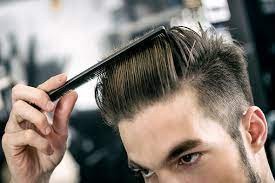Undergoing a Hair Transplants in Ajman & Fujairah is a significant step towards addressing hair loss, but achieving the best results requires careful post-procedure care. For patients in Ajman, following specific recovery tips can enhance the healing process and optimize the outcome. This guide provides essential recovery tips to help you navigate the post-transplant phase effectively.
Immediate Post-Procedure Care
Follow Surgeon’s InstructionsAdhere strictly to the post-operative instructions given by your surgeon. These guidelines are tailored to your specific procedure and will include details on how to care for your scalp, manage pain, and recognize signs of complications.
Keep the Scalp CleanMaintain cleanliness to prevent infection. Use a gentle, non-medicated shampoo as recommended by your surgeon. Avoid scrubbing or rubbing the transplanted area; instead, gently pat it dry with a clean, soft towel.
Manage Pain and DiscomfortTake any prescribed pain medications as directed to manage discomfort. Over-the-counter pain relievers like acetaminophen may also be recommended, but avoid NSAIDs such as aspirin that can increase bleeding.
Control SwellingSwelling around the forehead and eyes is common after a hair transplant. To minimize swelling, keep your head elevated, especially while sleeping. Applying cold compresses around the eyes (but not directly on the scalp) can also help.

Post-Procedure Care
Avoid Physical StrainRefrain from engaging in strenuous activities and heavy lifting for at least a week. Physical exertion can increase blood flow to the scalp, leading to potential bleeding or displacement of the transplanted follicles.
Protect Your Scalp from Sun ExposureSun exposure can damage the sensitive, healing skin on your scalp. Avoid direct sunlight for the first few weeks post-procedure. Wear a hat or use a surgeon-recommended sunscreen when you need to be outdoors.
Avoid Smoking and AlcoholBoth smoking and alcohol can negatively impact the healing process and hair growth. It is advisable to avoid these substances for a few weeks before and after the procedure to support optimal recovery.
Hair Care and Maintenance
Gentle Hair WashingResume washing your hair with a mild shampoo after the initial recovery period. Use lukewarm water and be gentle when applying the shampoo to avoid dislodging the transplanted follicles. Follow your surgeon’s instructions on how and when to resume regular hair washing.
Avoid Hair Styling ProductsRefrain from using hair styling products such as gels, sprays, or dyes for the first few weeks after the procedure. These products can irritate the scalp and affect the healing of transplanted follicles.
Avoid Heat TreatmentsAvoid exposing your scalp to excessive heat from hairdryers or other styling tools. Heat can irritate the sensitive skin and impact the healing process.
Monitoring and Follow-Up
Schedule Follow-Up AppointmentsRegular follow-up visits with your surgeon are crucial for monitoring the progress of your recovery. These appointments allow your surgeon to assess healing, address any concerns, and ensure that the transplanted hair is growing as expected.
Watch for Signs of ComplicationsBe vigilant for any signs of complications such as excessive redness, swelling, discharge, or fever. Contact your surgeon immediately if you notice any unusual symptoms or if you have concerns about your recovery.
Psychological and Emotional Care
Manage ExpectationsUnderstand that hair growth takes time. The transplanted hair may initially fall out before new hair starts growing. This process is normal, and full results may take several months to a year. Managing your expectations can help reduce anxiety and improve overall satisfaction with the outcome.
Seek SupportHaving a support system can be beneficial during the recovery period. Share your experience with friends or family members who can provide encouragement and emotional support throughout your healing process.
Conclusion
Recovering from a hair transplant requires attention to detail and adherence to post-procedure care guidelines. For patients in Ajman, following these recovery tips—ranging from immediate care to long-term maintenance—can significantly impact the success of your procedure and the quality of your results. By managing pain, avoiding complications, and maintaining realistic expectations, you can ensure a smooth recovery and achieve the best possible outcome from your hair transplant.
This post was created with our nice and easy submission form. Create your post!





